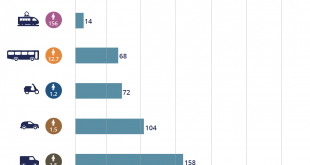Resolution 5.1 of the National Health Assembly 2012 on “Systems and Structures for Promotion of Walking and Cycling in Daily Life”, of which the government cabinet officially recognised and assigned responsible agencies to consider taking corresponding actions, states in 1.5 that “The Ministry of Education requires education institutes to have a curriculum that provides knowledge and develop skills for safe walking and cycling, such as knowledge about hand signals and protective equipment, and to promote and support students to walk or cycle to school/college with participation of students, parents and communities.” Responses to inquiries from Office of the Cabinet Secretary and Office of the National Health Commission show that the Education Ministry, especially Office of the Basic Education Commission, agree with the resolution
 |
 |
| TCC began developing walking and cycling curriculum for schools | |
Thailand Cycling Club (TCC) as the designated leader in the movement to turn this resolution into actions has therefore come up with a “Project for Development of a Curriculum to Provide Knowledge and Develop Skills for Walking and Cycling” to develop such a curriculum to propose to the Education Ministry and to develop framework for building capacity of schools/colleges that promote walking and cycling.
The first stage of this project is a preliminary consultation with two education experts, the Deputy Director of the ministry’s Education Management Innovation Office and an expert education supervisor, at TCC office on August 25, 2014 to create common understanding about how the curriculum should be developed, what core subjects, both major and minor, the curriculum should be integrated into, and learners’ development activities.
 |
 |
 |
| Consultation with education experts | ||
This consultation concluded that primarily the curriculum would be optional and can be integrated into various subjects and learners’ development activities, both independently subject by subject and concertedly by teachers in different subjects working together. Broad framework of the curriculum was also agreed. When completed, a draft curriculum would be tested in four schools in the inner city and the suburb, and in primary and secondary level for a semester in the second semester of the 2014-2015 tuition year.
The next step is to develop a draft curriculum and learning management plan that is consistent with learning standards and indicators of the Basic Education Core Course 2008. Then there would be meetings to develop guidelines for using the curriculum in schools, including activities. The draft curriculum would be pilot tested, monitored and evaluated. Finally, results of the test would be concluded to come up with a curriculum and guidelines appropriate for integrating it into education institutes in January 2015.
Reported by Gawin Chutima
Committee Member, Thailand Cycling Club
————————————————————————————————————————————————–
Thailand Cycling Club is the first member (Associate Member) in Asia of the European Cyclists’ Federation (ECF) and a co-founder of the World Cycling Alliance (WCA).
 ชมรมจักรยานเพื่อสุขภาพแห่งประเทศไทย ชมรมจักรยานเพื่อสุขภาพแห่งประเทศไทย
ชมรมจักรยานเพื่อสุขภาพแห่งประเทศไทย ชมรมจักรยานเพื่อสุขภาพแห่งประเทศไทย



